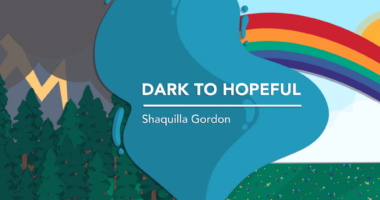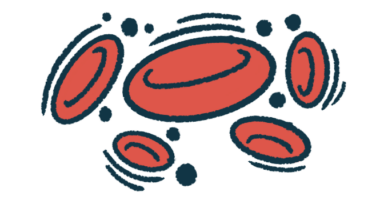How PNH changed my life mentally, physically, and emotionally
PNH symptoms affect every aspect of this writer's daily life

When asked how I’m feeling, I often force a smile, nod my head, and say, “Good! How are you?”
But what I truly want to say is, “PNH is kicking my butt! I am feeling it mentally, physically, and emotionally.”
When I’m in the midst of fighting paroxysmal nocturnal hemoglobinuria (PNH), a rare disorder in which my red blood cells break apart prematurely, it can be difficult to step outside of myself and view my fight more objectively. One day, while sitting on my bed, it was like a lightbulb went off. I finally realized how my illnesses — PNH and aplastic anemia — were wearing on me.
PNH comes with a plethora of symptoms that affect me every day. Undergoing PNH treatment or adjusting to new medication can also cause side effects. These physical challenges are hard enough, but I also have to put up a mental and emotional fight.
With PNH, every day seems to bring a new challenge. As I lay my head down each night, I know the new day will bring new issues that will be even harder to fight. This is exhausting in a way that can be hard to describe — but I’m going to try.
Mental effects
My mental state took a hit after PNH flipped my life upside down. I had to adjust to a new way of living, a new routine, and new priorities. But without the proper tools or time to adjust, I was left in a state of confusion.
I often asked myself, “Why am I going through this?” and “Will I ever get past this?” I knew PNH was a rare blood disorder, so my mind was filled with fear, frustration, and anxiety.
Over time, practicing positive thinking helped me push through the hard days. I’d tell myself, “If I can get through this tough time in my life, I can handle many other things life might throw at me.” I began to transform my mind and become mentally strong. I practice gratitude and journal my emotions to move in a positive direction mentally.
Physical effects
PNH affected my body in many ways, from leaving bruises all over me to causing me to run out of breath after walking from the car to the hospital entrance. I started to feel physically weak. I couldn’t stay at family functions or socialize with others for long because simply communicating and being “on” exhausted me quickly.
As PNH symptoms took a toll on my body, I had in-depth conversations with my doctor in which I expressed the importance of my physical health. My doctor was great about reminding me to take things one day at a time. I’d walk on days I felt good or sit on my back porch to breathe in some fresh air.
Over time, I felt less guilty for taking physical exercise slowly.
Emotional effects
My emotions were all over the place when I was diagnosed with PNH. I felt confusion, curiosity, frustration, determination, and anger. After I settled into a routine of treating my blood disorders, I became more aware of my emotions. I began to feel calmer and more confident now that I had a treatment plan.
Being aware of my emotions and giving myself time to feel them helped me tremendously. I decided not to bury any of my emotions because they were all valid. Instead, I tried to understand what I was feeling and why, fully feel it, and then begin moving in a positive direction.
I add balance to my life with chronic illnesses by appreciating all life has to offer, showing gratitude and grace, and instilling practices to keep my mind and body strong.
Note: PNH News is strictly a news and information website about the disease. It does not provide medical advice, diagnosis, or treatment. This content is not intended to be a substitute for professional medical advice, diagnosis, or treatment. Always seek the advice of your physician or other qualified health provider with any questions you may have regarding a medical condition. Never disregard professional medical advice or delay in seeking it because of something you have read on this website. The opinions expressed in this column are not those of PNH News or its parent company, Bionews, and are intended to spark discussion about issues pertaining to paroxysmal nocturnal hemoglobinuria.








